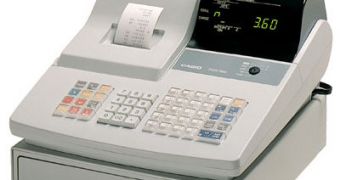The Bulgarian National Revenue Agency (NRA) is faced with an unprecedented number of tax evasion incidents involving tampered cash registers. Pressed by the harsh economic times, many store owners hire hackers to modify the memory of such devices in order to hide transactions.
Countries in Eastern Europe are currently experiencing the peak of the financial crisis, whose symptoms have already started to fade away in the west. The governments of Bulgaria and Romania are taking harsh measures to find additional sources of income to fund their respective state budgets.
Unfortunately, decisions such as increasing the Value Added Tax (VAT) pushes many small business owners to engage in tax evasion in order to keep afloat. Such is the case in Bulgaria where hardware hackers are leasing their services to have the software on cash registers modified.
Local media reports that in exchange of a monthly fee, the hackers can set the devices to delete transactions randomly or automatically reduce the value of each transaction by a predefined percentage. The National Revenue Agency claims that this type of fraud is seeing rapid growth, especially in large cities and is hard to combat.
In order to gather proof that would warrant a full audit, the NRA agents have to make undercover purchases, then return at the end of the month to match their receipts to the data on cash registers. This is not a trivial task, considering that all government agencies are currently operating on very limited budgets.
It is very likely that this form of tax evasion will cross the border into Romania, where the government is planning to increase taxes in a bid to secure the release of money from the International Monetary Fund as part of the country's loan. And it wouldn't be the first time when Romanian and Bulgarian hackers borrowed techniques and ideas from each other.
In related news, the Romanian organized crime police (DIICOT) arrested four Bulgarian citizens, for rigging multiple ATMs in Bucharest with skimming devices. A number of six hundred credit cards issued by Romanian banks were affected.

 14 DAY TRIAL //
14 DAY TRIAL //